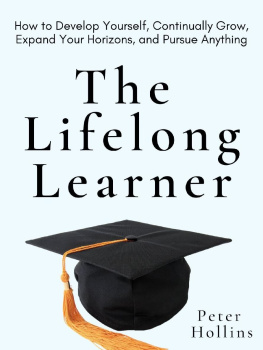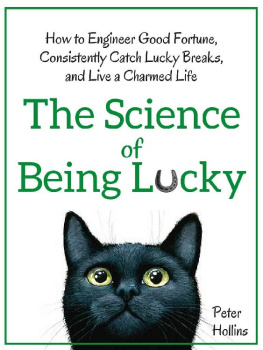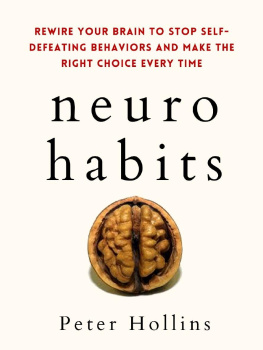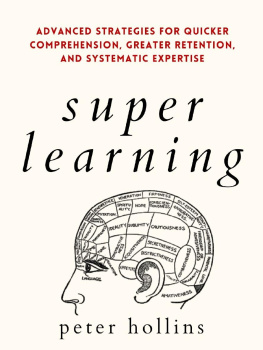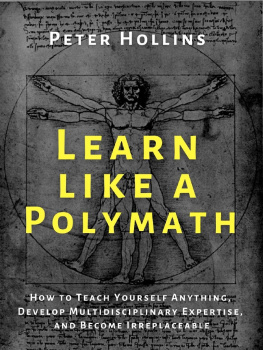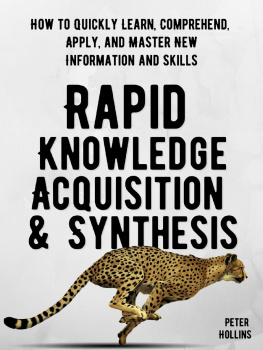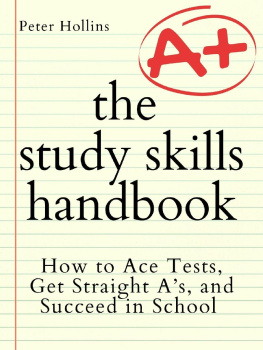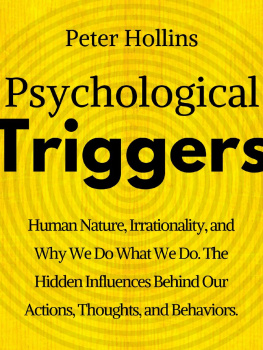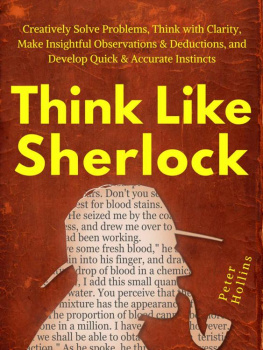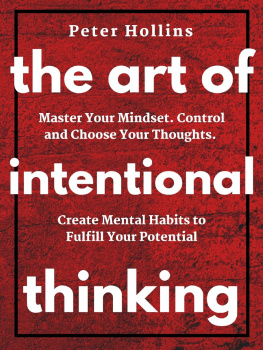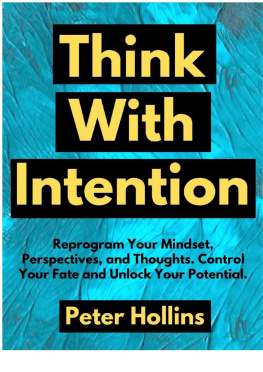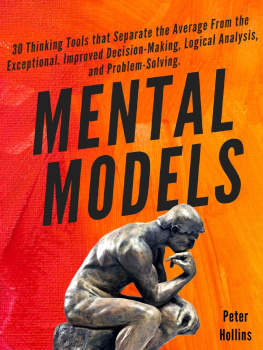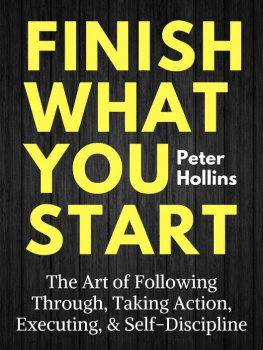Peter Hollins - The Lifelong Learner
Here you can read online Peter Hollins - The Lifelong Learner full text of the book (entire story) in english for free. Download pdf and epub, get meaning, cover and reviews about this ebook. genre: Romance novel. Description of the work, (preface) as well as reviews are available. Best literature library LitArk.com created for fans of good reading and offers a wide selection of genres:
Romance novel
Science fiction
Adventure
Detective
Science
History
Home and family
Prose
Art
Politics
Computer
Non-fiction
Religion
Business
Children
Humor
Choose a favorite category and find really read worthwhile books. Enjoy immersion in the world of imagination, feel the emotions of the characters or learn something new for yourself, make an fascinating discovery.
- Book:The Lifelong Learner
- Author:
- Genre:
- Rating:3 / 5
- Favourites:Add to favourites
- Your mark:
- 60
- 1
- 2
- 3
- 4
- 5
The Lifelong Learner: summary, description and annotation
We offer to read an annotation, description, summary or preface (depends on what the author of the book "The Lifelong Learner" wrote himself). If you haven't found the necessary information about the book — write in the comments, we will try to find it.
Peter Hollins: author's other books
Who wrote The Lifelong Learner? Find out the surname, the name of the author of the book and a list of all author's works by series.
The Lifelong Learner — read online for free the complete book (whole text) full work
Below is the text of the book, divided by pages. System saving the place of the last page read, allows you to conveniently read the book "The Lifelong Learner" online for free, without having to search again every time where you left off. Put a bookmark, and you can go to the page where you finished reading at any time.
Font size:
Interval:
Bookmark:
How to Develop Yourself, Continually Grow, Expand Your Horizons, and Pursue Anything
The Lifelong Learner:
How to Develop Yourself, Continually Grow, Expand Your Horizons, and Pursue Anything
By Peter Hollins,
Author and Researcher at petehollins.com

< < CLICK HERE for your FREE 14-PAGE MINIBOOK: Human Nature Decoded: 9 Surprising Psychology Studies That Will Change the Way You Think. > >
--Subconscious Triggers
-- Emotional Intelligence
-- Influencing and Analyzing People

Table of Contents
Humans have a startling tendency to gravitate toward the mundane, the monotonous, the known. It's very easy for us to get stuck in a rut. If were not careful, we can find ourselves years into a job or a relationship that we loathe simply because it's comfortable. Comfort zones litter all aspects of our lives, but what exactly do they entail?
Judith Bardwick, a management theorist, used the term "comfort zone" in her 1991 work, Danger in the Comfort Zone. She postulates that the comfort zone is a behavioral state in which a person functions in an anxiety-free state, employing a limited set of behaviors to achieve a consistent level of performance, typically without any perception of risk.
Simply put, a comfort zone is an area where you feel safe and secure. It's familiar territory where you know what to expect. Think of it as the inside of your house. Its familiar, safe, and secure. The fear zone is the space just outside your house, where you feel a bit anxious and uncertain. Stepping outside of your house and out into the fear zone can be scary, but it's also how you will tackle new challenges, continuously learn new skills, and get things done.
As the fear zone is daunting and scary, it's natural to be a little anxious. But if you persevere and push through, you'll enter the learning zone. This is where your skills will blossom and obstacles will become opportunities for growth. When it comes to lifelong learning, having the courage to leave your comfort zone can open up new possibilities and opportunities. Stepping outside of our normal routines enables us to look at things with a different perspective and gain new insights, making us more flexible in both our thinking and approach to new situations.
Embracing the unfamiliar terrain of leaving our comfort zones also helps us build confidence and strengthen our resilience so that we can continue growing and learning for the rest of our lives. Eventually, this newfound knowledge learned means your comfort zone has expanded even further! Congratulations! You have now entered the growth zone. Its time to live your dreams, realize your aspirations, set new goals, and find your purpose. While it's comfortable to stick with what you know and just stay cuddled up in your comfort zone forever, that doesn't mean it's necessarily good for you.
Psychologists believe that spending too much time in our comfort zones can lead to boredom or stifle learning and personal growth (Leberman, Martin, 2002). Sometimes it's necessary to step outside of our comfort zones in order to learn new things or challenge ourselves. Abraham Maslow's (1943) theory of self-actualization posits that humans have an innate need to reach their full potential. This can only be done by challenging oneself and pushing beyond one's comfort zone. Therefore, to truly become self-actualized, we must be willing to take risks and face our fears.
When you think of a successful, intellectual, and talented individual, who comes to mind? Perhaps someone like Thomas Edison, the American inventor whose advancements to the light bulb made it a symbol of brilliance? But, despite being a very clever and talented guy, Edison famously tried ten thousand times to invent the light bulb. It was a lengthy, gradual process that required inquiry, perseverance, and hard effort.
According to renowned Stanford psychologist Carol Dweck in her book Mindset, it is not IQ, ability, or education that distinguishes successful people. It's their thinking, or how they tackle life's difficulties (Dweck, 2015). Her study separated two opposing belief systems: fixed versus growth mindsets.
People with a fixed mindset believe they have fixed amounts of each ability. To them, failure indicates inferiority, and criticism is a death blow to their self-esteem. In contrast, people with a growth mindset are adaptable. Any setbacks become opportunities for learning and growth (Dweck, 1999). Most of us have experienced some sort of setback in our lives. Maybe we didn't get the job we wanted, or our relationship ended unexpectedly.
Whatever the situation, we usually find a way to pick ourselves up and carry on. This ability to bounce back from adversity is known as resilience. While resilience is defined as performance recovery after degradation, antifragility is defined as performance gain when faced with adversity (Taleb, 2012). People who make it a habit to step outside their comfort zone are more equipped to deal with change and ambiguity, which leads to resilience and antifragility (Williams, 2022).
Psychologist Andy Molinsky has dedicated his career to understanding why people resist leaving their comfort zones, and how they can overcome that resistance. In his book Reach, he outlines several common psychological roadblocks that prevent people from taking risks and embracing new challenges. Some of them are feeling inauthentic in your pursuit of a dream, feeling like an imposter, fear of failure or embarrassment, uncertainty, the never-ending anxiety stirred by the unknown, and fear of being disliked.
These are all valid fears that come with the thought of leaving what is familiar. However, by acknowledging these psychological roadblocks, we can begin to overcome them and take steps toward leaving our comfort zones.
In his research, Molinsky discovered three techniques that people utilize to successfully venture outside of their comfort zones. He refers to these essential tools as the three Cs: conviction, customization, and clarity. Have you ever eaten a meal that was bland and unappealing until someone added a special ingredient that completely transformed it? Strong convictions are the secret ingredient of life. They are your core beliefs, such as altruism, generosity, gratitude, integrity, accountability, and perseverance. They are the qualities that give you a distinct spark and make you stand out. When you're certain that what you do and say matters and that what you provide is valuable to you and others, your energy transforms and you become persuasive and resilient. It provides you with a sense of security and allows you to focus on performing your best work since you know that everything you are doing matters to you.
Our minds are programmed to fearfully overreact to uncertainty. As uncertainty grows, the brain transfers control to the limbic system, which is where emotions like anxiety and fear are generated. If you are somebody with strong convictions, you don't give up when things get difficult. You're willing to take a bullet for the sake of your beliefs. You stand by them, never shifting blame. You might have observed some of these qualities in strong leaders. Their strong convictions can encourage others to publicly speak up and share their perspectives, even if what they say is difficult to hear.
Font size:
Interval:
Bookmark:
Similar books «The Lifelong Learner»
Look at similar books to The Lifelong Learner. We have selected literature similar in name and meaning in the hope of providing readers with more options to find new, interesting, not yet read works.
Discussion, reviews of the book The Lifelong Learner and just readers' own opinions. Leave your comments, write what you think about the work, its meaning or the main characters. Specify what exactly you liked and what you didn't like, and why you think so.

